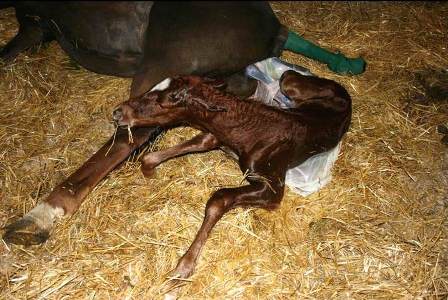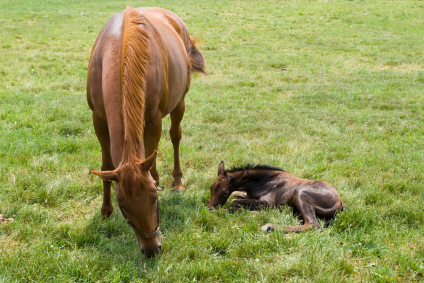
The mare-foal bond is a special connection that’s normally associated with the behavioral interactions between a mare and her foal. What’s not usually thought of is the bond formed between their immune systems and microbiomes. A healthy gut microbiome goes hand in hand with a strong immune system. Foals have innate immunity at birth, but several adaptive immune responses can take up to a year to develop to those of an adult horse. The correct development of a foal’s immune system is very important in protecting them from microbial pathogens and, in turn, gastrointestinal disease.







